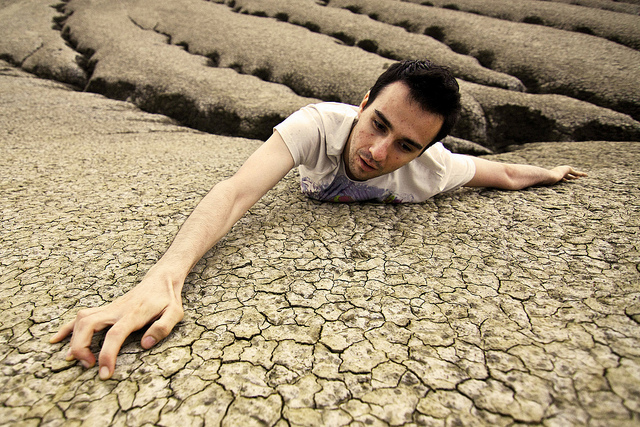
The truth is, it depends on your health, diet and lifestyle; if you are very active you will need more water to replace fluid lost by sweat. If you eat lots of water-rich foods you may not need as much water. The weather is also a factor; on a hot day you will need more water to replace water lost through sweat. St Mark James First Aid manual also says if you are unwell, a faster breathing rate, vomiting, diarrhoea and fever all cause your body to lose fluid which must be replaced. Some medical conditions should also be taken into consideration, such as diabetes; high glucose levels mean your kidneys excrete more urine in order to get rid of excess glucose.
Water makes up two thirds of our body weight, and is essential to keep our organs working properly. We lose fluid through breathing, urinating and sweating which needs to be replaced. There are many guides as to how much you should drink. One recommendation is that men should drink 3 litres and women 2.2 litres although this is quite a lot of water.
The body loses around 2.5 litres of fluid a day, however that doesn’t mean we need to make this up in drinking as we can also get water from the food we eat. A lot of fruit and veg are water-rich, particularly cucumbers, tomatoes, celery, watermelon, watercress, spinach, grapefruit, lettuce, broccoli and carrots.
The Department of Health recommends 1.2 litres a day, which is 6x200ml glasses, although other sources say 8x8oz glasses. As a general rule, if you make sure you drink enough so you rarely feel thirsty, and keep your urine looking clear to light yellow, you are on the right track.
Effects of Not Drinking Enough Water
Dehydration is the result of not drinking enough water and can cause tiredness and lethargy. Signs that you are dehydrated include feeling thirsty, dry mouth/lips, dark urine, not passing much urine, headaches, lack of energy and light-headedness. All of these symptoms and side-effects can be resolved by drinking more water and rehydrating your body.
St Mark James First Aid manual explains that dehydration can be serious, especially in infants, young children and elderly people.
In severe cases, dehydration can lead to hospital admission and acute kidney failure. In these instances a fluid challenge may need to be given via an intravenous drip. Monitor for the above signs and symptoms of dehydration in order to prevent these complications.
Treatment of Dehydration
As a first aider, your aim is to help restore the patients lost body fluids and salts. First Aid Classes teach that water is sufficient however, non-fizzy ‘isotonic’ glucose drinks are preferred if available. An alternative is to add salt (1tsp per litre) and sugar (4-5tsp per litre) to water in order to replace the lost nutrients. Encourage the patient to drink plenty of fluid; it is best for them to sip slowly but regularly.
Conclusion
To conclude, you should match your daily intake of fluid to suit your own day to day lifestyle. Look out for the signs of dehydration and adjust your intake accordingly. Aiming for 1.2-1.5 litres is a good starting point. Choose healthy drinks as much as you can, and opt for foods which are water-rich to help stay hydrated.
Staying hydrated will boost your energy levels, improve your skin and keep your body in good health!